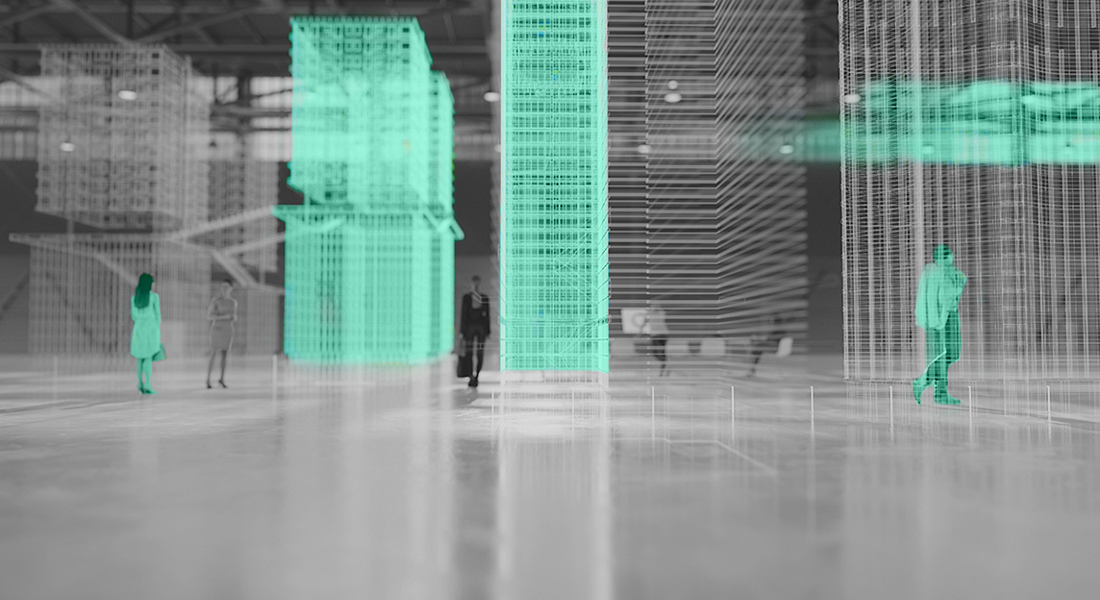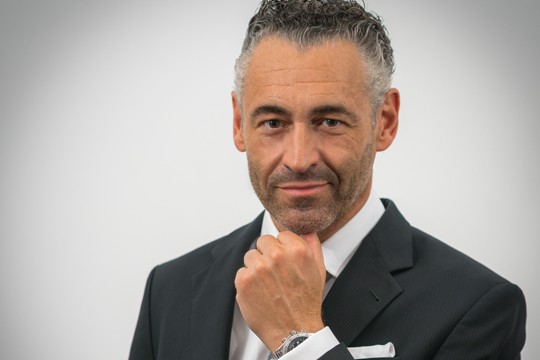So Corona still has something positive about it: where resistance to flexible structures and new forms of work was still being voiced at the beginning of 2020, concepts from Company Rebuilding and New Work were implemented in the pandemic in a flash. Marc Wagner, Head of Employee Experience at Head of Employee Experience of Atruvia AG, affirms this trend and welcomes the new openness towards platform-oriented structures. He sees nothing threatening in it, because: "Company Rebuilding works via a strict construct of rules".
Detecon: Company Rebuilding and New Work are areas that you have mainly dealt with in the last years. What makes these concepts different and what makes them different?
Marc Wagner: New work concepts deal with the questions "What impact does digitization have on the design of work? What new structures and forms of work are we facing?" We define this along the four dimensions "People & Organization", "Principles & Regulations", "Places & Platforms" and "Technologies & Data". What was often neglected in the past was the relationship to the customer: How do you connect the internal operating model with the customer approach and the market? This is ultimately the gap that Company Rebuilding closes: "How do I build the company towards the customer on the basis of the company's DNA, how do I design value creation and how do I involve the customer in this value creation process? This is all about the much-discussed ambidexia, i.e. being able to make the existing more and more efficient while at the same time enabling radical innovations that, in case of doubt, even challenge the existing business model.
Then the real goal of Company Rebuilding is to live ambidextry successfully within an organization?
Exactly. For many, Company Rebuilding sounds almost threatening. For me, however, it's about bringing ambidextry to life, operationalizing it, and not seeing the history of the existing company as ballast, but seeing the existing, the legacy, the reputation, all the experiences that have been made, as an asset in the face of new market players. This can certainly give you a competitive advantage.
The concept is very radical in a positive sense, because it really gets to the root of problems. Are there any pioneers in practice who have already implemented such a structure and are therefore successful?
Of course there are. We didn't develop the concept "out-of-the-blue" as a theory. Rather, it is an observation of successful patterns of companies that can position themselves particularly successfully in the digital age.
A very good example is Haier, the largest equipment manufacturer in the world. A few decades ago, Haier found itself in an existential crisis - and then chose precisely this radical company rebuilding step. The entire company was divided into small dynamic micro-enterprises, so-called micro-enterprises, and non-customer-centric ballast was thrown overboard, while at the same time using the existing, legacy, as an advantage. Thus a very adaptable platform was gradually built from a rigid organization, which optimally represents ambidextry.
In such an organism, in which every micro-enterprise acts to the best of its ability, how do you prevent duplication of work or internal competition?
Company Rebuilding requires strict rules. How long a cell exists and how it interacts with other units is exactly defined. There is maximum transparency about the performance of the individual cells and units within the cells, so that it is always possible to see where structures exist that do not act efficiently towards the market and generate the greatest possible customer value. Such units can then possibly be better deployed elsewhere within the network. This is not a new form of staff reduction program, but offers those who have failed with an idea the opportunity to contribute their experience elsewhere.
About: Marc Wagner
Marc Wagner, Head of Employee Experience, Atruvia AG, is a proven expert in the field of Employee Experience, Transformation, Agile Organizations, New Work and Company Rebuilding. Before joining Atruvia, he was a Managing Partner at Detecon and responsible for building up the Company Rebuilding practice. He accompanied many companies on their way to digital transformation.
Does a company that is managed according to company rebuilding principles correspond to a social platform in the internal relationship? All members of the company are networked on this platform and share information, resources and build something "new".
Exactly. With the help of technology, we are now able to create such a platform and make communication and collaboration very efficient. Digital collaboration allows us to reduce the complexity of communication and collaboration and to push value creation in small units.
Which three things do you need to consider if you want to tackle Company Rebuilding in your own company?
The first point sounds trivial: Make it a top management issue! A radical transformation changes structures and involves cultural interventions - for this, the support and role model function of top management is important. By the way, this also means that structures that are newly created must be protected so that they are not eaten up by the existing system.
The second point concerns value orientation, the outcome orientation in the OKR concept. You must be clear about what you can create with the resources, potentials and possibilities. Strict focus on customer value also means eliminating all activities that do not have a measurable customer or employee value. Otherwise the concept will not work.
The third point is: Don't let yourself be distracted by the first defeats and setbacks. You have to give yourself time for such a transformation.
What is the first step that top management must take if Company Rebuilding is to be introduced?
Top management should focus on how to generate the greatest possible customer value with the available resources. For this it is important to have a precise overview of the starting point. Top management must also form the team that leads the transformation and can move it forward. Less personal relationships should play a role in the selection process. The goal is high performing teams.
How do you assess the development in the coming years when it comes to the structures of organizations - especially corporations?
Corona was an incredibly powerful booster for organizational changes and thus for the implementation of concepts from the New Work area. Loss of control and lack of transparency were suddenly more of a hindrance, because there was no other way than to work from home, based purely on trust. This was a big step that many companies would not have taken so quickly under normal conditions. I therefore assume that we will be more open to such platform-oriented structures in the future.
You are now responsible for the Employee Experience. How should the Employee Experience be seen in the context of Company Rebuilding? Do employees feel comfortable there or are they rather afraid?
First of all, you have to think about what you mean by Employee Experience. We have defined it this way: Employee Experience ensures that a working environment is created in which employees can optimally develop their potential in the interest of the company. And we break this down into the following essential elements:
We eliminate all time wasters that prevent employees from concentrating on the customer. Because our most precious and important asset is time. And we create an environment that inspires employees, where people enjoy interaction and go the extra mile. The physical will always be relevant here, but we invest a lot of energy in new forms of social cohesion or the digital representation of "taking pride in success".
Empoyee Experience also includes an end-to-end view of the service functions People Management, People Analytics, Digital Work, Real Estate and Facility Management as well as Sustainability and Health Management. With this innovative "end to end" approach our company aims to focus its internal services on an integrated employee experience with new opportunities for employees to develop.
If you, as an employee in a crisis situation such as the current corona pandemic, notice that your flexible structures and cross-functional teams are working well - what should you be afraid of?
That gives courage! Thank you very much for the interview.







